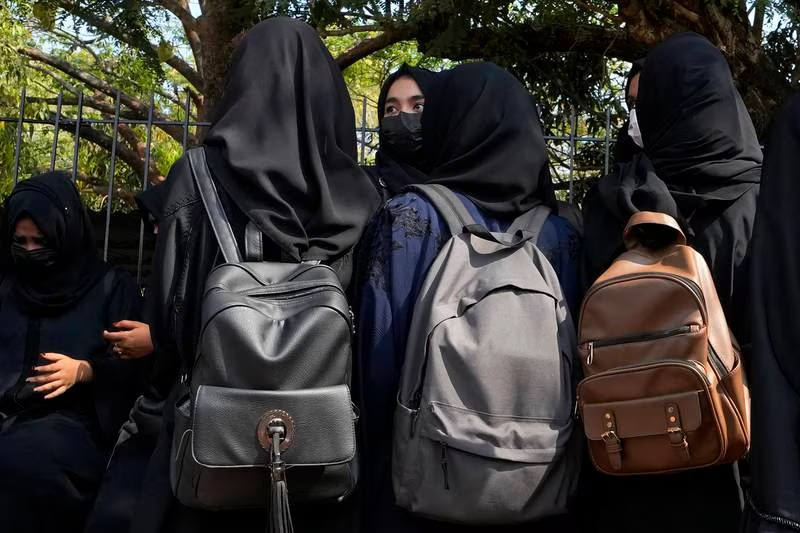A source said the scam would never have come to light had it not been for the Direct Benefit Transfer (DBT).
Scholarship money released for students studying in a school in Chhattisgarh was deposited in bank accounts of students enrolled in an institute in Karnataka. Such shocking cases of embezzlement and many others are coming to light as the Central Bureau of Investigation (CBI) starts removing layers in the multi-crore rupee and multi-state scam related to the scholarship scheme run by the Ministry of Minority Affairs.
Cyber café owners who functioned as schools’ Institutional Nodal Officers and District Nodal Officers who allegedly approved domicile status for “ghost” or “non-existent” students seeking scholarships in minority institutions, including madrassas, in 21 states, are now likely to face CBI heat.
The initial lot of 830 scholarship frauds under the CBI scanner include 99 in Rajasthan, 62 in Chhattisgarh, 14 in West Bengal, 11 in Telangana, 154 in Uttar Pradesh and 162 in Karnakata. As the federal agency prepares to question some bank officials, its initial probe has pointed toward gross irregularities that caused a loss to the government of Rs 144 crore through 830 institutions between 2017-18 and 2021-2022.
Sources said data for years prior to 2017-18 is not digitised and unavailable immediately so they cannot rule out the possibility that the scam may have started over a decade ago, perhaps, during the UPA government. “It’s still a matter of investigation,” said a top investigator on a question about when the scam could have started.
Not only were the standing operating procedures violated by institutional nodal officers, but there seemed to be a deliberate attempt to create fake beneficiary accounts by using documents such as scanned copies of bank passbooks and bonafide certificates of the institution where the beneficiaries were purportedly enrolled for education, said investigators.
A source said the scam would never have come to light had it not been for the Direct Benefit Transfer (DBT). The ministry of minority affairs’ decision last year to discontinue these scholarships for Classes 1 to 8 students, as they were covered under the Right to Education Act, also added to the suspicion about the lapses. The ministry officials were shocked to note that they did not receive any complaints from the beneficiaries over curbs on scholarships or requests for restoring the scholarships.
The DNOs, who usually are government employees, allegedly did not perform due diligence during verification of applications, in some cases may be due to staff shortage, but they were aware of fake INOs as the KYC process of each INO was being done by the district nodal officer only, said the ministry’s complaint received by CBI.
The National Scholarship Portal provides clear roles and responsibilities for all the users and adequate checks and authentications to prevent frauds if the standing operating procedures are followed diligently.
The ministry implements three scholarship schemes—pre-matric, post-matric and merit-cum-means for students of six minority communities. Before handing over the complaint to CBI, the ministry ordered a pilot study on physical verification of students in some institutions under suspicion. During one such check at Chhattisgarh’s Girls Ashram Sarandi School in Kanker district, it was found that students who had applied for the central government scholarship scheme for 2022-23 were not studying in the school.
This was a government primary school, functional for Classes 1 to 5, and with no minority students in the school. And no student of the school was receiving a central minority scholarship. This implied that the scholarship applicant list under which the ministry had been releasing money did not contain names of any of the students studying in the school.
A third-party verification team tried to contact over phone the students mentioned in the school’s applicant list provided by the ministry but failed to do so. Later, it was found that the applicants who applied from this school in Chhattisgarh were actually residents of Karnataka. Thereafter, State Noda Officer of Karnataka also carried out investigations on the directions from the ministry in which 723 institutions were marked as fake. The CBI has now set out to identify and track down unscrupulous elements in the system that were siphoning off the scheme funds by adopting fraudulent means. Investigators suspect that the multi-crore scam would not have been possible without the collusion of institutions, applicants, Institute Nodal Officer, District Nodal Officer and bank officials as the scholarship amount is directly credited to bank account of the beneficiaries.
The ministry has been giving scholarships to students belonging to minority communities including Muslims, Sikhs, Christians, Buddhists, Parsis and Jains. Apart from course fee, ranging around Rs 20,000 per annum, the scholarship also offers a maintenance allowance of Rs 1,000 per month for hosteller and Rs 500 for day scholars. Scholarships are also offered for professional and technical courses up to the PhD level. The CBI is also studying the action taken reports filed by Chhattisgarh, Bihar, Punjab, Jharkhand and Assam in the matter after the ministry flagged the issue.
The National Council of Applied Economics Research, which conducted an evaluation of the scholarships scheme in July 2022 for the ministry, found that at the school/institution level many of the institutions were completely non-operational but were availing the benefits of the scheme. Also, the enlisted beneficiaries were found as fake in many operational schools. The CBI is now likely to take up investigations in relation to three different scenarios—fake beneficiaries enrolled under fake institutes; fake beneficiaries enrolled under genuine institutes and partially fake beneficiaries from genuine institutes, said an investigator.

